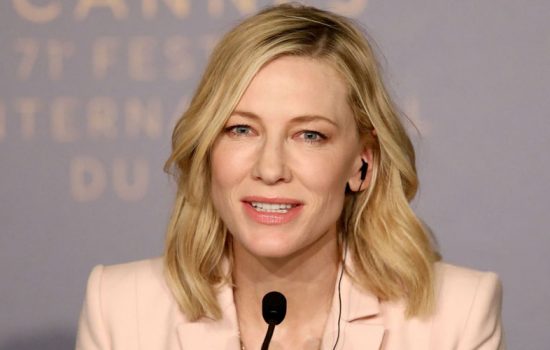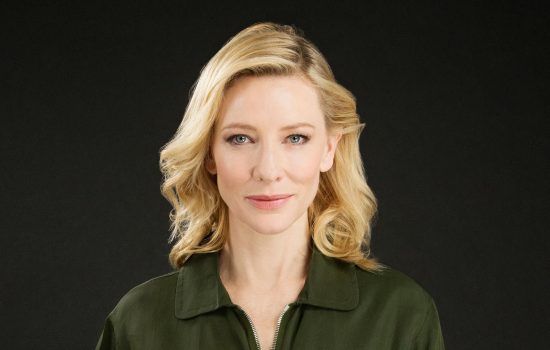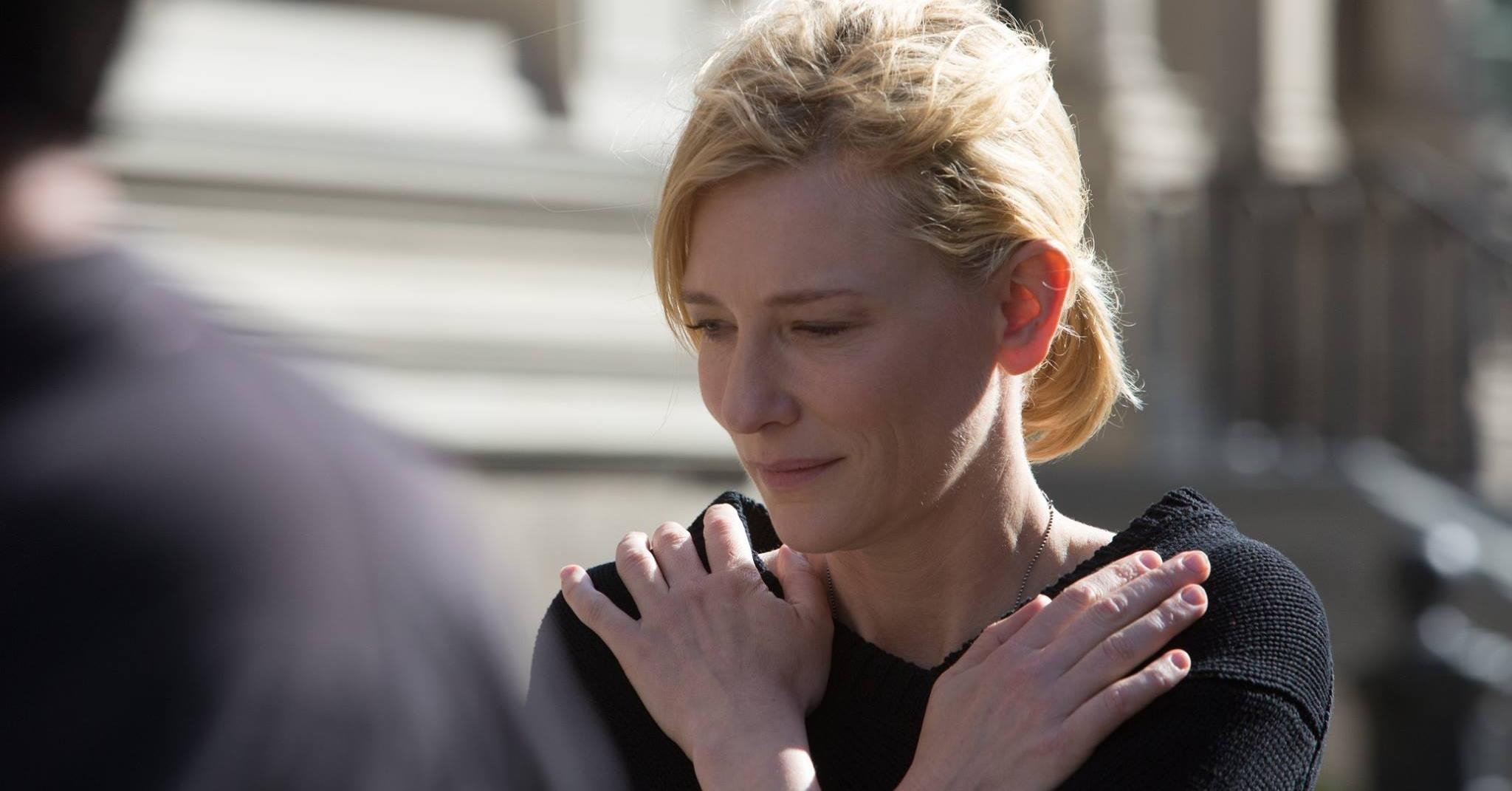Hey everybody!
Cate Blanchett interview for Town & Country is here! There are also new photos by Max Vadukul. Enjoy the reading!
Cate Blanchett Sounds an Alarm About the Global Refugee Crisis
The actress and Goodwill Ambassador for the UN’s refugee agency talks to the president and CEO of the International Rescue Committee about the international effort to help people displaced by conflict.
The refugee crisis is a defining challenge of our age. Sixty-five million people have been forced from their homes by civil wars around the world. Twenty-two million have crossed borders and thus become refugees. They come from places like Syria, Afghanistan, and South Sudan. They are living in ramshackle conditions in Kenya, Ethiopia, Jordan, and Lebanon. They are victims of terror.
More than half of them are children.
Americans have big hearts and know the value of freedom and security. People often say charity begins at home; I say that it should not end there. But there is also a good strategic reason to help: If we don’t, the result is instability. Close allies like Jordan are struggling to support hundreds of thousands of refugees. The failure to provide proper aid has brought the crisis to Europe’s shores. And what could be more inviting to extremist groups than refugee children with nothing to do and no hope for the future?
As president of the International Rescue Committee, I know how vital our work is. The IRC was founded by Albert Einstein in New York in 1933; the needs now are greater than at any time since World War II. And at a moment when governments are threatening to reduce support, we are more dependent than ever on private generosity—and the bravery and commitment of people using their voices to draw attention to the crisis at hand. Which is why I was so eager to chat with Cate Blanchett (above, in Ralph Lauren Collection).
Most celebrities have a cause—it’s good PR, after all. But this one isn’t the simplest to tackle. It’s complicated, it’s political, it can require decidedly unglamorous travel, and it’s not necessarily something that the bulk of your ticket-buying moviegoers have a visceral connection to. Then again, as her fans know, Cate isn’t drawn to simplicity or merely going through the motions. Her work on behalf of the UNHCR, the UN’s refugee agency—which is one of the IRC’s longest-standing supporters—is substantive. It also sets an example, underlining the call to action I find myself making day in and day out: It is time to step up together.
David Miliband: What drew you to work on behalf of refugees? Was there a particular story you read or person you met that propelled you to take action?
Cate Blanchett: For me this issue has always been very close to home. I, like many Australians, feel a deep shame about our government’s continual violation of international human rights and draconian immigration system when it comes to offshore detention in places like Nauru and Manus Island. Every day I would read the news and feel more and more hopeless about the situation. It got to a point where I could no longer look away or ignore what was happening, not only on Australian shores but around the world.
So I began a conversation with Alison Tilbe at the UNHCR in 2014, at a time when the crisis in Syria had reached the breaking point. Given that the world is facing unprecedented global displacement, touching the lives of millions—both those forced to flee their homes and those tasked with providing them with shelter and protection—my work with the UNHCR began with a necessarily broad focus. Never in my lifetime had I felt more of a responsibility to stand alongside the world’s most vulnerable people.
DM: It’s interesting that you felt so connected to something that seems very far from what most people would assume is the fabric of your daily life.
CB: Actually, being a mother was, for me, undeniably a central point of connection to the refugee crisis. Learning that more than 10 million of the world’s refugees are children, and then meeting refugee parents in Jordan and Lebanon who had fled to protect the lives and futures of their children—well, that was personally heartbreaking and galvanizing.
DM: When you met with these Syrian refugees, what were the main points of connection you had with them?
CB: The idea of home. That was what I found to be the most profound point of connection with the people I met. Their memories of home—the natural beauty, the smells, the tastes, the feelings. It was the sense of fondness and longing when they spoke of home that I connected to—the idea of home being something that you always want to return to, even if you know it is impossible to do so. There is a beautiful poem by Warsan Shire called “Home,” and the first line is, “No one leaves home unless home is the mouth of a shark.” It perfectly expresses the notion that no refugee has ever fled their home out of choice. It’s always out of necessity.
DM: Were there any particular interactions that have stuck with you or haunted you since you’ve returned from your travels?
CB: I shared a meal in the Zaatari refugee camp in Jordan with one family whose 13-year-old son limped around in the dust with my eight-year-old son, playing soccer. I asked why he was limping, and his parents told me that he still had shrapnel in his leg from a sniper attack.
As a parent I connected with their desire to protect their children and provide them with every possible opportunity in life: a safe home, an education—but most important, a childhood free from the horrors of war.
DM: People say that if you study the statistics it’s depressing, but if you meet the people, there is resilience and hope. Did you feel that way?
CB: The statistics are certainly depressing. If you were to simply look at the statistics, it seems like an insurmountable problem.
Before I went on my first mission with the UNHCR, I prepared myself for what I was about to witness. And it’s true—the thing that was most surprising was the sense of hope and gratitude that people had. I met with families who had been forced to flee their homes in the night, taking with them only what they could carry in their arms, but escaping with their lives. They would talk of their future with hope and excitement, despite their circumstances and the challenges they knew they would face in starting a new life elsewhere. Their optimism and gratitude were incredibly humbling.
DM: Celebrities often take a beating for trying to use their fame to do good. How do you cope with the cynicism? Or don’t you find it?
CB: From my perspective, I feel an obligation to use my voice to speak up for those who are voiceless. It just so happens that my voice is able to reach a larger audience because of the fact that I have a public profile. If that were something that I thought was worthy of criticism or cynicism, then perhaps it would bother me that there are people out there who look to belittle or demonize those who are trying—in some small way—to help.
And I think if people were to meet the refugees I have had the privilege to meet, their cynicism would vanish. The resilience, the pride, and the resourcefulness of these people is humbling no matter what one’s profession.
As an artist, I’ve never been more conscious about the type of work one wants to make in times of crisis and in the face of moral repugnance—which we are currently witnessing around the world. There is a huge disconnect from the human collateral in this overly hostile and aggressive political climate. As a UNHCR Goodwill Ambassador, my task is simple: to help reforge the human connection to the stories of these people who so desperately need support.
DM: What are your next steps toward relieving the crisis?
CB: I’m currently working with the UNHCR on its global #WithRefugees campaign, and we are seeking to mobilize more voices in support of refugees than ever before.
And as you well know from your work with the IRC, in the current climate it’s no mean feat to provide lifesaving humanitarian assistance. Most operations are severely underfunded. Some of the UNHCR staff members I met with were having to make unbelievably difficult decisions about what form of assistance to cut, because the money simply isn’t there. Who wants to make the decision to cut food rations down to a meager 800 calories a day for families already undernourished, or cut schooling programs knowing that children’s futures are being lost?
DM: I’m consumed with the “disconnect” you referred to. Pope Francis said the world is suffering from “the globalization of indifference.” How do you think we can galvanize people in the comfortable West to action?
CB: If it is still true that the majority of the Western world labors within a democratic framework, then our votes and our voices count. The way we consume counts. The way we discuss these issues counts. Never has there been a greater need for tolerance, compassion, and solidarity with people who have lost everything. Never has there been a more important time to advocate for shared responsibility within our own communities and to address the fear and xenophobia that are dividing societies. Humanizing the issue–telling the individual human story–is one way to tackle that fear and indifference.
Photographed at Cipriani 25 Broadway in New York City. Hair by Robert Vetica for Leonor Greyl Paris. Makeup by Jeanine Lobell at Streeters. Nails by Tracylee using Chanel Le Vernis. Tailoring by Yasmine Oezelli at Lars Nord. Produced by Wanted Media.
Gallery Links:







 A Manual for Cleaning Women (202?)
A Manual for Cleaning Women (202?) Father Mother Brother Sister (2025)
Father Mother Brother Sister (2025)  Black Bag (2025)
Black Bag (2025)  The Seagull (2025)
The Seagull (2025) Bozo Over Roses (2025)
Bozo Over Roses (2025) Disclaimer (2024)
Disclaimer (2024)  Rumours (2024)
Rumours (2024)  Borderlands (2024)
Borderlands (2024)  The New Boy (2023)
The New Boy (2023) 











